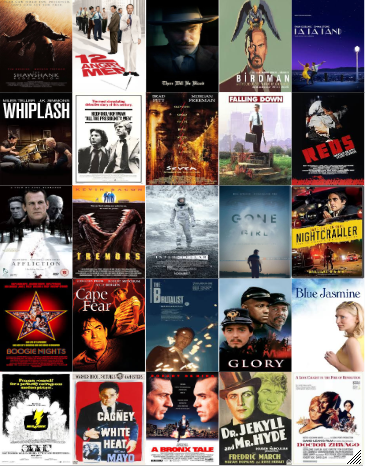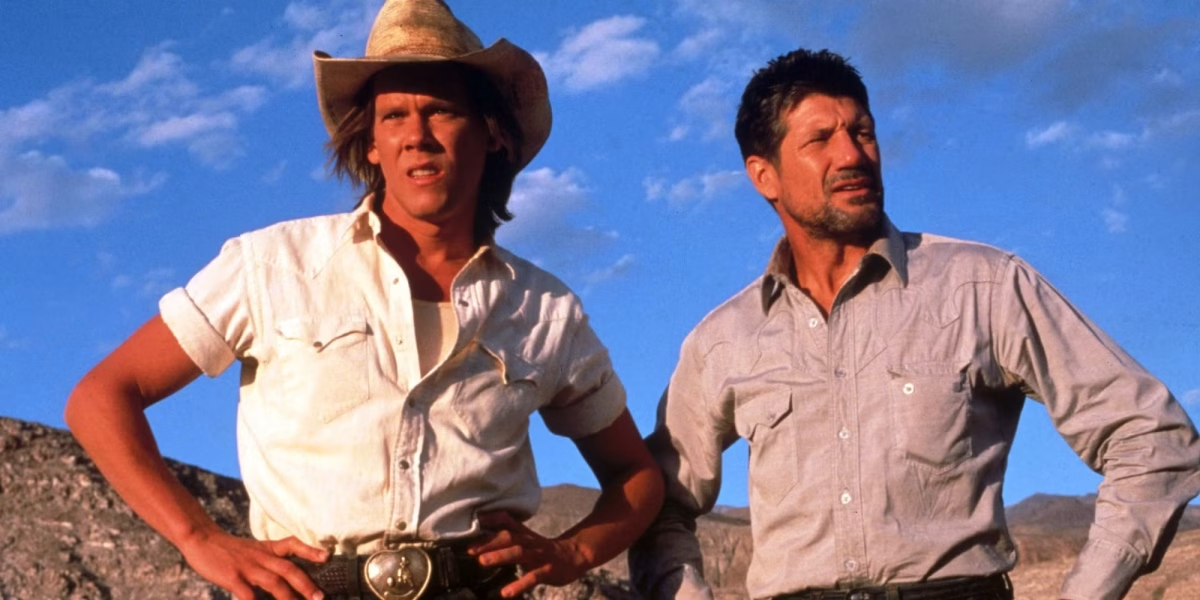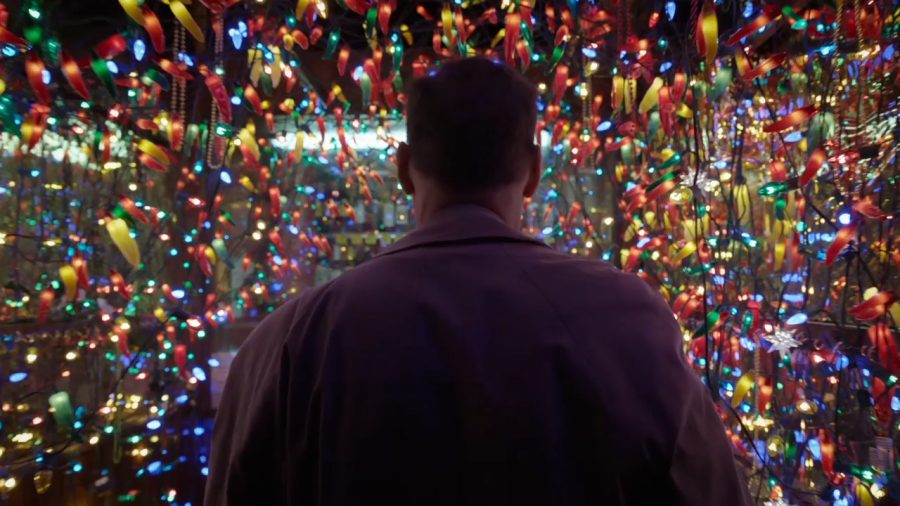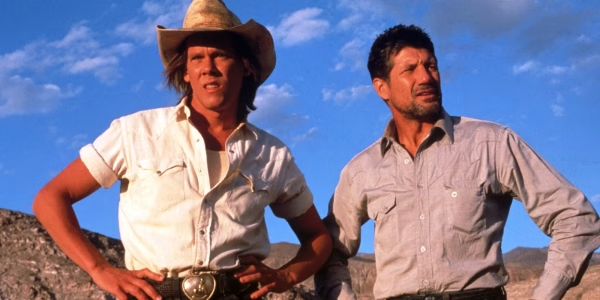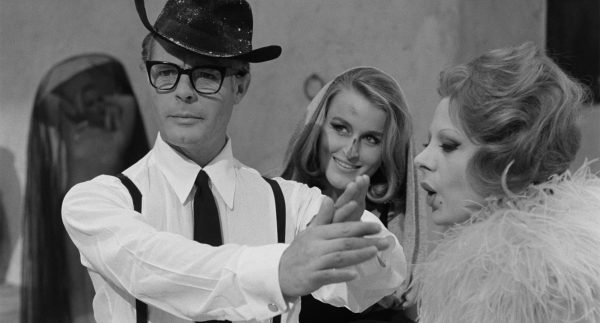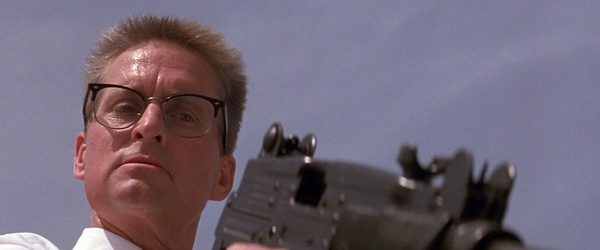The Unexpected Virtue of a Crazy Idea: Part 4
The most beautiful shot in the movie.
This is the fourth installment and final part of my review of the film Birdman: or The Unexpected Virtue of Ignorance.
I would first like to apologize for the very large gap in time between this part and the last. The statement, ¨Until next week,” is evidently very fluid.
In the past two articles I have focused on specific characters, namely Riggan and Mike. In this last piece, however, I’d like to focus more on the aspects of the filmmaking itself as well as what I consider to be incredibly important character moments.
There are several elements that have somehow gone unmentioned until now.
Firstly, I would like to double back on the cinematography.
Aside from the writing, the cinematography is probably Birdman’s greatest virtue. Mentioning it in passing while talking about Riggan does not do it justice. Even so, in an attempt to not waste any more page space I’m going to discuss it in conjunction with another interesting aspect of the film, the soundtrack. Most movies have a score. Some movies’ score is so memorable that it transcends beyond the film itself. On the other hand, some movies choose to exclude the use of a score altogether. This is mostly done to service the tone, which in most cases is very dark and depressing, and music would detract from that tone.
I have yet to see a movie that approaches its soundtrack in an even remotely similar way to that of Birdman.
The bulk of the score for Birdman is composed of exclusively drums that are almost constantly running. What is even more interesting is that on several occasions we get to see the person playing those drums.
One time we see him is when Riggan and Mike are walking down the street. The camera follows in front of them as they walk. The camera quickly pans to the drummer who is made to look like a performer that you would commonly see on the streets of New York. The music that we hear is perfectly synced up with what the drummer is actually doing.
We see the drummer during another tracking shot, this time within the theater where Riggan is walking to confront Mike. I always found it interesting and kind of strange that this random guy is just hanging out in the middle of an active production and no one seems to pay him any mind.
As I said, this type of drum-centric music is found across nearly the entire film. This choice isn’t incidental; like most things in this film it’s very purposeful.
Most if not all films have their score related to certain aspects of the production. It’s usually tied to a character, a setting, or a certain moment.
Birdman does something almost unprecedented in that the score is connected to the cinematography. Every step is connected to every drum beat, and every drum beat is connected to every step. These drum beats are used to emphasize certain emotions the characters are feeling as they move. If they are more panicked the drums are more frantic sounding. If they are angrily walking to tell someone off, the drum hits are much more solid and loud. It’s a perfect marriage of audio and visuals- communicating so much that the audience is unlikely to pick up on.
If you have ever seen or even heard a drum solo you would know how truly chaotic they can be. A mad jumble of sounds fighting for dominance, with the drummer themself moving in ways that shouldn’t be possible. Yet somehow they end up being a complete and cohesive piece of music. Despite the outward mess, the end product is something almost beautiful. This characteristic of the music further relates to the film itself, especially to the life of Riggan.
As can be seen throughout the entire movie, Riggan’s life is a complete mess. His daughter wants nothing to do with him, he can’t get through a preview without disaster, and he’s absolutely bleeding money. Somehow though, it all comes together in the end. Now that’s the more optimistic way of looking at life. There is also the more nihilistic outlook one can have about life. Birdman addresses this through the inclusion of the soliloquy “Tomorrow and Tomorrow and Tomorrow” from William Shakespeare’s Macbeth. This is done when a crazy man in the streets begins shouting it as Riggan goes to buy a drink.
In essence, the soliloquy is about Macbeth who is lamenting after the death of his wife. He talks about how life is nothing but a meaningless crawl towards an inevitable doom, where none of our actions really have any significance in the grand scheme of things-thus making life seem pointless in comparison.
Now this way of looking at life is certainly not a very healthy one. Though it is how a lot of people view it.
Riggan holds both outlooks on life during the course of the film. When he holds the latter, the Birdman character has the most influence over him.
The image chosen for the second article in this series was captioned, “Riggan about to take flight.” I suspect at the time of release many of the readers had no idea what was meant by that. After the aforementioned soliloquy is delivered, Riggan passes out on the sidewalk and wakes up the next day. This is where the Birdman character comes back into the equation. He starts trying to convince Riggan to go back to playing Birdman again. Unlike the past few times, here, it works. Riggan lets out a bird cry, and just like that he begins to levitate off the ground, much like how he did in the opening shot. He begins to literally soar over everybody as he rises high in the air. This could be a visual representation that Riggan’s ego has finally consumed him to the point where he believes that he is better than those around him, just because of who he is. Then in a scene of true cinematic artistry, with the music swelling, there is a deviation from the now familiar drums to something more comparable to that of a Max Steiner score. Riggan begins to fly throughout the streets of New York feeling for the first time in years that he matters, that he is a god.
Then Riggan lands in front of the theater and simply walks in.
Although that’s not where it ends, a taxi cab driver gets out of his car and approaches the theater. He is seemingly aggravated, and it can be inferred that he is asking to be paid for his service. He is of course stopped by security and turned away, unpaid. So it is safe to say that Riggan got to the theater by cab, he didn’t fly there as was shown. So was what we saw, as fantastical as it was, just a delusion? Just something Riggan made up in his mind to make him feel better about himself? Just another way for Riggan to trick himself into thinking he’s important?
The question, “How did Riggan’s life turn out?” could be asked. Did he fall into the despair and meaninglessness of life, or was he able to see it through and realize that things can turn out well in the end?
I suppose this is a due question to be answered, seeing as both possibilities have been explored.
Riggan gives his first official performance with Tabitha Dickinson’s judging eye looming over him. The first act apparently goes off without a hitch, with people praising the performances as they leave. When we get to Riggan in his dressing room, he seems to be uncharacteristically calm. I suppose I should clarify that the way the play ends is with Riggan’s character “Eddie” killing himself. Of course they use a fake gun and blood prosthetics to give off the effect. However, this time it’s different. There is no red stopper on the barrel that Mike was complaining about earlier. Riggan, Mike, and Leslie run through the scene we’ve seen twice already by this point. However, instead of just “shooting” himself like the past few times, Riggan walks up to the front of the stage. Pretends to shoot the crowd, then shoots himself. Only this time, he doesn’t get up.
As Riggan lies there on the floor, the crowd leaps up in thunderous applause with a standing ovation for the marvelous production they just witnessed. If the viewer is vigilant enough, they can see Tabitha Dickinson get up and walk out of the theater.
After a series of wild cuts, we end up in a hospital room with Jake and Riggan’s ex-wife Sylvia. Riggan survived the ordeal, managing to only blow his nose off. Managing to blow his beak off, if you will. Jake then informs him that their play was a massive success that garnered a glowing review from Tabitha Dickinson. Everybody across the country knows his name again. Not as Birdman, but as Riggan Thompson: accomplished actor willing to blow his own nose off for his craft. This time it’s no delusion, it’s actually happening, Riggan got exactly what he wanted. He then walks into the bathroom and removes the surgical mask as the Birdman character looks at him in disgust.
Riggan has finally been able to separate himself from Birdman permanently. In both a literal and figurative removal of the mask, he puts the comic books behind him forever.
He then opens the window and steps through it, but instead of going down, he goes up. Ascending into the heavens as the music swells once again. When his daughter Sam returns to the room she is surprised to not see her father. She sees the open window and immediately thinks the worst. She looks down but then thinks to look up. There she sees her father floating in the air. The expression Emma Stone gives is almost unreadable and can be interpreted in so many different ways. Was she happy? Scared? Shocked beyond belief? We couldn’t really know for sure, because the film ends after that.
Could Riggan’s ascent mean that for the first time in his life he is finally free from his past? Or could it mean that he has fallen into an endless pit of delusion that is now inescapable? Well, it’s hard to say. Truth be told, I don’t believe the director knows either.
Birdman is a film I will never get tired of watching. Out of my top five favorite movies, it’s the one I’ve seen the most. Even after six watch-throughs I am still able to catch new details or view certain moments in different ways. My latest viewing was with my dad who was watching it for the first time. When he wasn’t sleeping, he was able to provide new perspectives that I hadn’t thought of before. This film is made in such a way that allows it to keep the experience fresh and new every time it’s watched.
On the surface, Birdman might look like a simple film. Ex comic book actor is trying to revive his career on Broadway and is met with many setbacks. However, if the viewer were to peel back the layers, it is my opinion they would see one of the most complex and masterfully crafted films ever made.
My personal rating of the film Birdman: Or the Unexpected Virtue of Ignorance is 10/10.
Since there are less than two weeks left in the school year, this is going to be the last time I see you for a while.
Don’t you worry though- I intend to keep on talking about the films I love, with a hopefully more consistent schedule.
So until I see you again, good morning, good afternoon, and good night.
“In Reel Time”
Tristan Good





















